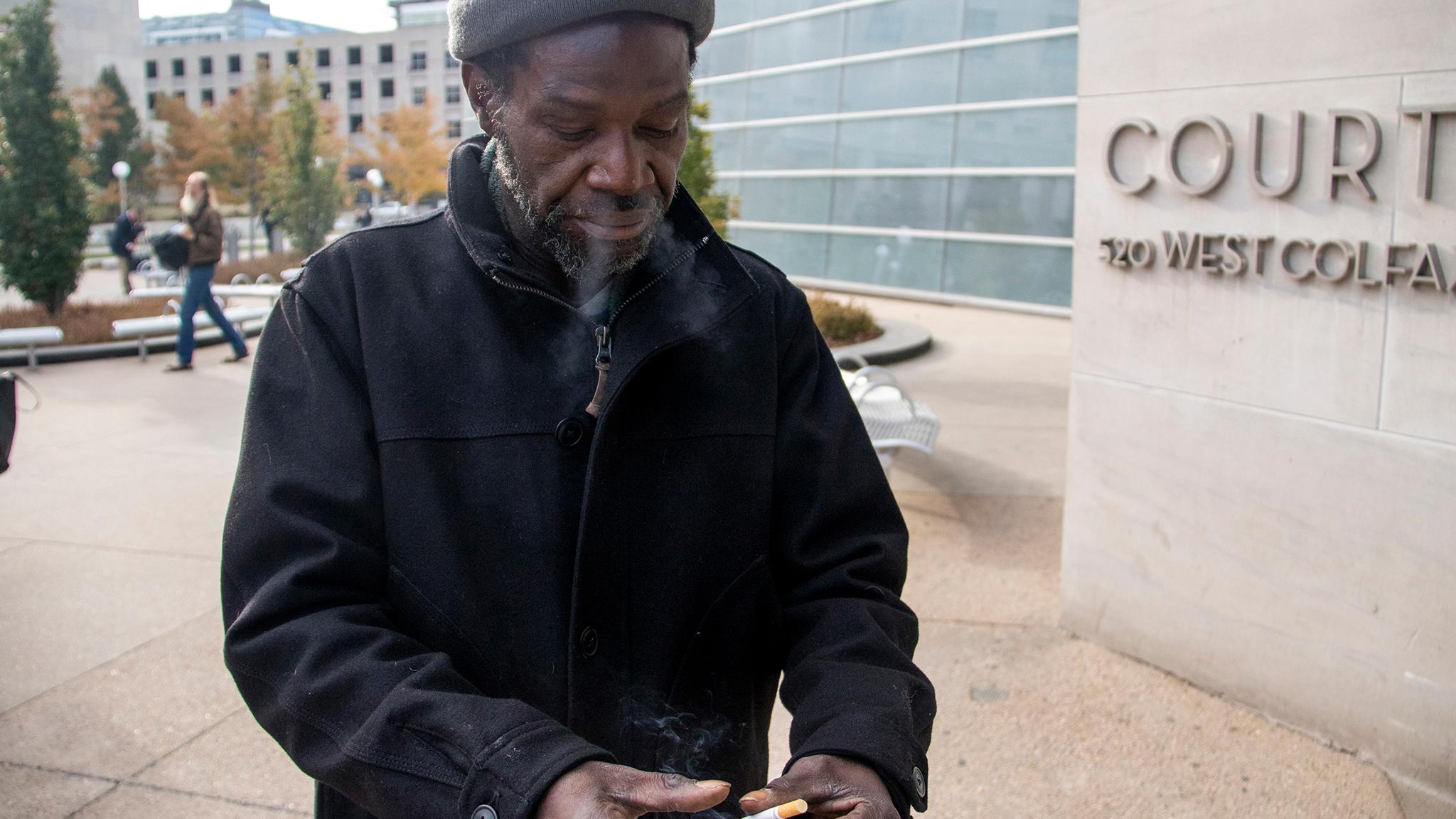A lawyer for the city and an expert witness for a man who has experienced homelessness tussled Friday over the heart of a case that challenges the constitutionality of Denver's ban on urban camping.
"There aren't enough (shelter) beds for the people who need them," Tony Robinson, a political scientist at the University of Colorado Denver, said in response to a chart the city's lawyer presented showing Denver's shelters have consistently had empty beds over the last few years.
Robinson, who has directed surveys of hundreds of people living on the streets and spent time observing and interviewing them one-on-one, said a count of empty beds does not reveal who was turned away because, for example, he or she left work too late to get to a shelter before curfews that many have in place.
Couples who do not want to be separated; parents -- particularly fathers -- who find family shelters are full; and people with pets are among others who find "there's no bed for who they are," Robinson added.
Assistant City Attorney Eric Reece suggested that relatively few people fit the categories Robinson listed. Robinson responded: "These are not tiny little groups."
The point is key because courts in other cities have ruled that officials can't make it illegal to live on the streets when shelters are inadequate. At the start of hearings last week on the challenge, Judge Johnny Barajas had said the question of whether shelters were adequate was "an issue."
"That's where the city has basically to present their evidence," Barajas said.
Listening to Robinson's testimony Friday was Chris Conner, director of the city agency Denver's Road Home that coordinates homelessness services. The city's lawyer planned to call Conner to talk about Denver's efforts to address poverty and homelessness, but ran out of time Friday after lengthy testimony from Robinson and another expert witness, Nantiya Ruan, a University of Denver law professor who has studied poverty, homelessness and ordinances affecting people living on the streets in Denver and elsewhere. Conner is now scheduled to testify when the hearings resume at the end of October.

Jerry Burton, who has lived on and off the streets of Denver for decades and is a homelessness rights activist, insisted in April as he camped along the South Platte on being ticketed under the law adopted by city council in 2012 that makes it a crime to eat, sleep or store belongings while sheltering in public with tents, tarps or even blankets.
Once proceedings for a trial over the ticket began, Burton filed a motion asking that his case be dismissed, arguing the ban is unconstitutional. Denver voters earlier this year overwhelmingly rejected an initiative backed by Burton and others that would have repealed the ordinance.
Robinson, the researcher, said Friday that Denver's ordinance was "one of the more harsh in the nation, in terms of language" and repeatedly drew attention to the ban on taking shelter against the elements. For people experiencing homelessness who cannot access shelters, "that's telling them, 'Die, or break the law,'" Robinson said.
In court papers, Assistant City Attorney Reece said Denver's ordinance was aimed not at criminalizing homelessness, but "related to the legitimate purpose of encouraging individuals to avail themselves of available services and protecting the health and safety of the public."
The 2012 law requires police to prioritize getting people to comply with the law simply by asking, and to try to get help for those who need it rather than citing them. According to the data compiled by Denver police at Denverite's request, between June of 2012 and this January, officers on more than 12,000 occasions approached individuals and groups in parks and other public spaces to enforce the ban. It's rare for even a written warning to be issued, let alone for an officer to make an arrest.
The advocacy group Denver Homeless Out Loud, of which Burton is a member, points to those figures -- thousands of encounters with police -- as evidence that being asked to move along is a constant and stressful prospect for people on the streets. Advocates say that until the city has enough housing that poor people can afford, those who do not want to or cannot sleep in shelters should be able to camp in public. Robinson testified Friday about his research showing people living on the streets report their mental and physical health has deteriorated because of repeated encounters with police, and that their safety is compromised when they retreat to isolated areas to try to avoid being approached by police or forego taking shelter to avoid violating the camping ban.
Reece also noted in his court filings that Burton has cited a Miami case in which a court ruled in favor of people experiencing homelessness. The city lost that case because challengers "did not have a single place where they could lawfully be," Reece said. "The opposite situation exists here. There is always capacity at a shelter in Denver, so there is always a place (Burton) can legally be."
In addition to raising questions about the adequacy of the city's shelters, Burton argues that the law is unequally enforced.
"What I'm frankly interested in is any numbers that illustrate selective enforcement," the judge said as Ruan, the law professor, prepared to testify.
Ruan, saying less than one percent of the city's population is without a permanent address, cited Denver Police Department figures showing almost all the people its officers have approached under the camping ban, asking them to move along and ticketing those who do not comply, are described as "transient."
"They're only giving citations to people who are homeless," she said.
"When I go to Red Rocks, I see a lot of blankets and there's not a lot of move-on orders," Ruan added.
Police keep figures on how many times they have approached people under the camping ban and the results of such encounters, but not on how many times they might have seen but did not approach someone who was not apparently experiencing homelessness violating the ban. Assistant City Attorney Reece theorized that such a figure was crucial to Ruan's point for comparison's sake.
"That question would be frankly very difficult to research," Ruan said. "Because you're trying to prove a negative."
She acknowledged under Reece's questioning that Denver police had no policy to avoid enforcing the camping ban in cases involving people who did not appear to be experiencing homelessness.
Judge Barajas scheduled more time to hear witnesses from both sides Oct. 28 and 29. Barajas also will hear a summary of arguments from both sides before releasing a written decision that could end the case or return it to the narrow question of whether Burton broke the law and if so what punishment he should face.













